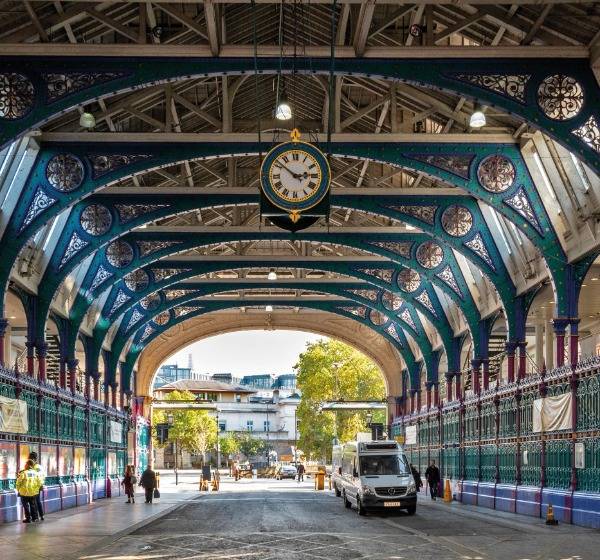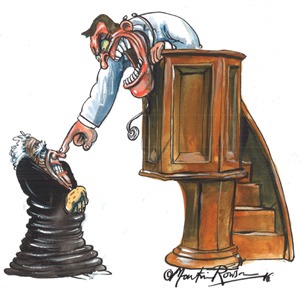I don't think I've ever met a wine snob. Well, perhaps one - a chap who came to our house with his wife and, offered red or white, asked to inspect both bottles, which he did with the air of someone faced with a choice between meths and pond water. I can't remember which one he unwillingly selected, and I don't care. The couple are divorced now; we remain friends with the wife. But I've met an awful lot of wine experts, and some of those are quite astonishingly knowledgeable. The very best of them are Masters of Wine, which as a professional qualification must rank as slightly more difficult than a diploma in brain surgery. The MW exam makes rocket science look easy. Even if you learned every fact in Jancis Robinson's vast 820page Oxford Companion to Wine that wouldn't necessarily be enough for the written tests. For the practicals, you might have to taste five vintages of a firstrate Bordeaux and decide which wine was which year. Or be given five white wines and told to identify the country each one came from. It's very tough, which is why most applicants fail and there are barely over 300 MWs in the world.
Some people have not only remarkable palates but a remarkable memory for what their palate has tasted. Take Robert Parker, the American oenophile who is the most influential wine writer in the world if he gives 90 points to a wine instead of 89, he can make a grower tens of thousands of pounds richer. Parker, they say, never forgets a wine. Offer him a 1989 Sangiovese from a tiny estate in Tuscany, and a decade later if you gave it to him blind, he'd identify the grower and the year.
A year or so back I attended a dinner at Christie's in honour of their wine expert, Michael Broadbent. In his speech he described another dinner he'd attended, thrown by a customer in San Francisco. All the wines had been chosen because Parker had given them 100 points. "And I could see why," said Broadbent. "Of course, they were all quite undrinkable." I took this to mean that they were simply over the top. If a wine is too powerful, too rich and too strong, it can wind up tasting like alcoholic Ribena.
At the same meal, Broadbent talked us through the wines he had chosen. One was a Chateau Mouton Rothschild, a first growth claret, from a year in the mid1970s I forget which. He said that he had tried it in barrel when it was first made, and had thought it was probably too tannic and so too astringent. But a few years later he'd tried it again, and it was opening up nicely, becoming soft, mellow and rounded. Now, he said, it had reverted to type. "It really isn't very nice, and I'd like to apologise to you all," he said.
When I got home I looked it up in a merchants' list. They were selling it for £200 a bottle. I thought that this was the precise opposite of wine snobbery someone so confident in their own knowledge and taste that they could apologise for a wine costing 40 or 50 times what most of us would pay.
The charge of snobbery is usually made against people who use pretentious language to describe a wine. Jilly Goulden on Food and Drink was a favourite of the TV impressionists. "Mmm," she would say, "I'm getting gooseberries, and mulberries, roast chestnuts, and a, mmm yes, a lovely, creamy, cedary flavour " (I used to think, if she's so vocal about a glass of wine, what is she like in bed?)
But how else would you describe it? Was she supposed to say merely "this tastes nice, but this one doesn't taste quite as nice"? How do you describe a piece of music? The desire to pin down flavour can lead to some pretty ridiculous comparisons: I saw a Gewurtztraminer once, which had 'top notes of cinnamon and vanilla, with an undertone of Nivea cream.' And it wasn't a joke. "Do I smell undergrowth? Do I smell damp saddle leather?" wrote Pamela VandykePrice of a Chateau Talbot she was enthusiastically praising. My predecessor but one as wine writer for the Spectator, Auberon Waugh, once said of a claret that it tasted like the contents of an ash tray. This too, was meant as praise, and it wasn't nonsense a hint of cinders and burnt tobacco might very well add to the complexity of a wine and make it all the more pleasing.
And some flavours are rather odd. The best Rieslings this is the main German grape, and now woefully unpopular, as the Germans pay the price for all that nasty Liebfraumilch and Blue Nun do have a hint of petrol, so when you sip it you can be reminded of the forecourt in a motorway service station. That's only a bad thing if it dominates the other flavours, probably of fruit and flowers. But it doesn't mean that if you see the word 'kerosene' used to describe a Riesling that the writer is a pretentious idiot.
Whatever you might think, we are very lucky in this country. Wine from 30 countries is sold here (including India, Brazil and Canada). Go into a French hypermarket and the chances are you'll face hundreds of yards of mediocre French which they have to flog at home because the good stuff is sent abroad, to face international competition. There might be one wine each from a handful of other countries Italy, Spain, Germany and perhaps the US. Otherwise you're stuck with the vin de pays, which is fine if you like it, but can get awfully dull. For instance, we've had many holidays in the valley of the Lot, which is gorgeous, but if I don't drink another bottle of cheap Cahors for the rest of my life I shall still die in peace.
And because our tax is on the alcohol content rather than the value of the wine, the good stuff can be cheaper here in Britain than it is in the region of origin. If you want cheap plonk, go to Calais. If you want something a bit classier, try Oddbins. Or the Spectator wine club. Don't imagine that you'll find cheap Chateau Cheval Blanc in St Emilion. Do they sell cheap diamonds in South Africa? You'll pay the world price, plus a bit for luck.
There is more excellent wine sloshing round the world now than ever before. And the really good news is that you can enjoy it all, without once being derided as a snob.

